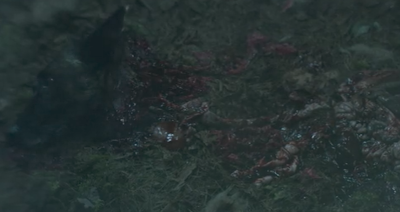Armed with somewhat more knowledge and the time, experience, and distance to not just be astonished at what I feel was a weird lack of business savvy from a multi-million if not billion dollar company, and some news stories that help explain things I can perhaps offer a guess at what was going on at Bethesda that they released a Fallout show without a single hint even of a game from the same IP capitalizing on the hotness that only a streaming series can deliver in this day and age.
I think it can be traced back, given all the news stories about studio closures, to Microsoft itself. With the recent studio closures being the talk of the gaming world this past week, a new vista opened up that suggested extreme pressure, duress, and managerial issues probably responsible IN PART for the boring space game and the lack of any project 'on deck' for launch or reveal with the show's debut.
(I myself have always had ideas for a more rogue-like Fallout game where you set out from the same town or vault, your character can die permanently and is randomly chosen, you can play as mutants or ghouls or robots in addition to humans, and levelling up and character builds are fast and fun. It could be modded onto Fallout 4, by the skillful and talented professionals who made that game, in about 8 months granted effective organzation and leadership and vision.) - [I am available for creative direction at frankly irresponsibly low prices, if anyone from Bethesday is reading this, leave a comment with your email let's make a hit]
As BSG is part of Microsoft XBox Games Studio (?) now, and was probably being banked on to quickly drop a genre-defining game in support of the console, the recent releases start to make more sense and their shift into more lucrative attempts (Fallout 76, real money shop stuff) at software can be explained as being tied to the balance sheet that investors froth at the mouth about.
That same dedication to the financial aspect of making games has pretty much cratered the entire industry in the past 10 years and has also led to a lot of sloppy behaviour from big companies that should know better but have a fiduciary responsibility (yes this is a reference to real life, but also the game streaming series Fallout!) to make poor decisions that pay the maximum posssible return to investors and shareholders.
It's why EA became a piece of shit, it's why Activision Blizzard lost all the goodwill either non-agglomerated company ever had, and it's part of the drawing of blood from the stone of reality that delusional capitalism excels at. EVs are greenwashing writ large, cap and trade was a noxious scam to steal from the public while polluting at an equal pace, NFTs were such a baldfaced scheme they sunk without a whimper, eCommerce is designed to empoverish all communities more rapidly than even Reagan's most based neoconservatism, and AI is mostly an orobourous generative scam built on the promise of esoteric, exploitative technologies of the future that is specifically designed to appeal to the sci-fi fantasies of computer understanders, but if you want to see the deleterious effects of capitalism, the bona fide premium examples have always been in video game entertainment, since E.T. in the 80s at least.
Still, let's not suggest it's all just due to the meandering will of a division of a 3 trillion dollar company, Bethesda have their own issues. In my opinion they've been making straight up pabulum since Oblivion, and as a Morrowind head (who first played Oblivion in 2010) I didn't find that game particularly compelling. Skyrim had typoes, broken quests, and dozens of other design issues and bugs that put me off of it. Plus it was gorgeous but utterly boring, and I had played Mount and Blade by that time, a game with bugs, design issues, and actually interesting gameplay.
The Bethesda-era Fallout series started Oblivionesquely with Fallout 3, which was outstanding and stunning if you played it right then. I found it janky and kind of boring, and beat it one time and never went back. New Vegas was broken and buggy but an absolute treat to play and explore. Even the shitty DLCs each had something interesting to offer or examine (including, and I shudder, Old World Blues—the lowest of the low).
Fallout 4 was really a step forward in so many ways, from the presentation to the moment to moment gameplay. The first 10 hours with that game were revelatory and so compelling I just couldn't stay away. And yet FO4 was also a step backwards in terms of narrative, writing, systems, and long term appeal. Everything was there for a good game and then they had to smash their dumbass railroaded storytelling and quests into it, while making it a more open-ended experience could have made it an all time great. I don't understand how the masters of open world games fail to understand the premise and make players start each playthrough in a 15 to 45 minute tutorial. By the 11th hour doubts crept in, and by the end of the game the shitty conclusions of the quests and frustrations had me feeling not just crestfallen but really bitterly disappointed. The game world seemed like the hollow place it was, with no reason to return.
I can justify a New Vegas playthrough and I think about doing one—the build I'd try, the new perk to examine, the factions to align with, the quests or companions to pursue—about once or twice a year. I haven't gone back to that game in a bit over a decade but I still think about it and then the idea of modding it into stability and figuring out my Nexus password again just kills my desire, but the game itself draws me back... wait it's not time for an unarmed explosives survivalist run! I'm getting distracted.
What does this have to do with what's currently going on at Bethesda? Well, good question. It seems I got carried away doing some sloppy blogging. But it's only possible to see some cultural shifts in terms of one's own experience of it, and use that perspective as the guide. What happened to the company that led to less interesting titles was its success and growth. Larger teams were making larger and more technically impressive games that with each iteration strayed from the very open-world principles that (with Morrowind specifically) launched their success and gained them the interest, admiration, and money of a large audience.
Then they released Fallout 76, which was a Games as a Service product and also horrifically and well-documentedly a terrible release. The product was yanked out of the oven like the Fire Giant in Nausicaa and forced to do battle only to melt sadly after one big belch of radioactive sales. Since, I'm told that the game has been improved and fixed, and it works more or less properly, and some people even like it. I'm like I'm good, though, I played FO4 and I don't need more of the same.
The grand freedom which allowed a new player to jump over the entire island of Vvardenfell and die on the landing is gone, it's flown the damn coop even. You can't abuse crafting or spellcasting or potionmaking to briefly become a demigod anymore in any game of Bethesda's. You can't even levitate anymore.
The freedom is over. But that's not just for the player at one end, it's also true for the designer, the programmer, the maker on the other end, and that's not just a capitalism problem, or a sickness of success, or a super uncritical audience of gamers (who are so easily parted from their money that it's sad and also why institutional money moved in on games so predatorily), it's a problem of management, of seeing easy money and guaranteed fat paycheque or bonus, of company culture trending towards a flat plateau, of being risk-averse, uncreative, uncritical, bloated, and too big and confident to switch tack on anything.
And the audience has rewarded it every time. This is why they got a boring space game rushed out the door, because when they sold a slightly more expensive version so they could do final beta testing and play three days early, they bought it and forgot about the game a week or two later. The business moves according to the cardinal rule of any over-financialized industry: risk not the investor's dividend and ye shall be rewarded. The only problem is, that was never true at all.
Massive layoffs seem to happen whether or not games are successful and seem to have more to do with labyrinthine internal politics. Profits have skyrocketed, the industry is worth more than it ever was in the past, and those profits are funnelled ever more aggressively into the hands of people who did none of the work. (And they say capital gains taxes put innovation at RISK, one could cry from laughter if it wasn't so sad). And in the case of Arkane Studios, they were sabotaged by upper management and lost a lot of their more senior and talented people which led to the collapse of a recent project not even worth a vampirically circumspect mention.
Senior and talented people are more costly because they have earned the right to ask for more, having experience, and having built success and generated profits for their employers. In traditional work-capital relations, these people are afforded more responsibility by an upper management that values loyalty, and then rewarded by increased salaries for their efforts and successes. In the hypercapitalism of today, where accountants run pretty much everything, the price of talent and experience are unconscionable.
Replace them with idealistic and youthful people who can be ground down through overwork, poor management, and synthetic crises and thrown out before they get senior enough to affect the bottom line—or when they burn out. This isn't just true in games studios, it's true in every sector from advertising to zebra husbandry.
So while I can certainly scoff at Bethesda and speciously ask why they make pabulum, it's probably healthier and more realistic to see them as a victim of the free market, one who will probably become yet more bloated, and release less remarkable games, until the original core of people are shuffled out and replaced and it too collapses and is scrapped for IP value, because outside of independent or private companies, that is the only future now.


